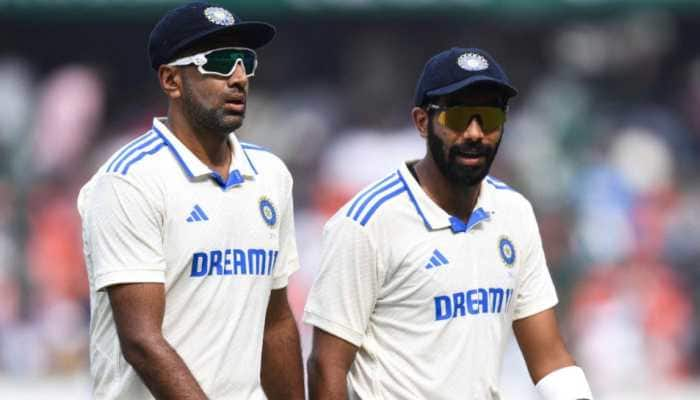Growing India-Vietnam strategic ties will mean a more stable Indo-Pacific
Vietnam, along with Japan, forms the two pillars of India`s Act East Policy.
Trending Photos
)
Major General P.K. Chakravorty/South Asia Monitor/IANS
Indian Prime Minister Narendra Modi visited Vietnam on September 2-3, 2016. The visit was the first by an Indian Prime Minister after 15 years. Twelve agreements were signed during the visit which included cooperation in outer space, UN peacekeeping, avoidance of double-taxation, cyber security, information technology, information on white shipping and contract for procurement of offshore patrol vessels.
Further, based on the strong relations which have been vindicated during the last 44 years of diplomatic relations and nine years of strategic partnership, both the countries agreed to elevate their current level of strategic partnership to a higher level. The relationship would be upgraded to the level of Comprehensive Strategic Partnership which Vietnam currently enjoys with Russia and China.
This is pertinent as it gives an official stamp to the mutual trust exhibited in our training and day-to-day dealings. With regard to the defence issue, there is no doubt that both the countries respect the recent Permanent Court of Arbitration ruling on the South China Sea and they agree to the freedom of navigation on the high seas.
To further strengthen the defence relationship, Prime Minister Modi extended a $500 million Line of Credit for purchase of defence equipment. The list of equipment to be procured is not exactly known but there is a high probability it could be frigates, submarines or the BrahMos missile. Vietnam during the visit signed a contract with L&T for purchase of four Offshore Patrol Vessels.
In addition, Prime Minister Modi announced a grant of $5 million for the construction of an Army Software Park at the Telecommunications University in Nha Trang. Further to assist surveillance, there will be cooperation in downloading images from outer space to provide real-time picture of activities in Vietnam`s area of interest.
Economic issues formed an important aspect of the visit. Enhancing bilateral economic engagement is a strategic objective. Both the countries would do their utmost to increase the bilateral trade to $15 billion by 2020. This would need immense efforts but can be achieved if both the countries enhance their business interactions and diversify their range of commercial activities. Further, there must be increased two-way investment especially by private investors of both countries.
Prime Minister Modi especially sought contractual facilitation of Tata`s Soc Tranh 1320 MW plant at the earliest. Both the countries would do their best to enhance exploration of oil and gas in the new blocks allotted for exploration. Connectivity between both the countries needs to be optimised. There is need for direct non-stop flights, dedicated shipping, and land connectivity to be optimised. This would automatically strengthen economic relations between the two countries.
It was indeed creditable that both the countries exhibited the highest degree of cooperation in regional and international forums. Prime Minister Modi was grateful to Vietnam for consistently supporting India`s candidature for a permanent seat in a reformed Security Council. It was further decided that India would support Vietnam`s candidature for non-permanent seat for the term 2020-2021 and Vietnam would similarly support India`s candidature for the same in 2021-2022. Overall, India and Vietnam relations moved to a higher trajectory during the visit.
India and Vietnam enjoy strong strategic relations which emerged with the First Memorandum of Understanding (MoU) on Defence being signed in 1994, the formal Defence Protocol in 2000 and the Strategic Partnership in 2007. Ever since, we have an annual Strategic Defence Dialogue with the Indian Defence Secretary representing India. Considering the intensity of the bilateral relations, the upgradation of these talks to the Ministerial levels would commence.
The Cam Ranh Bay has been often described as one of the jewels of Vietnam. The long protective seaward peninsula, natural inner and outer harbours form what many believe to be possibly the best deep water sea port facility in the entire world. There is also an air force base with excellent runways for state-of-the-art aircraft. The usage of these facilities by the Indian Navy and Indian Air Force would help India strengthen its strategic partnership and enable us to undertake actions to protect our assets in the South China Sea. The area is being quietly considered between the two countries.
Based on Vietnam`s requirements, India could provide Dornier surveillance aircraft, mini Unmanned Aerial Vehicles (UAVs), upgraded T-72 tanks and indigenously manufactured artillery equipment once the same has proved trials and a few old ships of the Indian Navy. Vietnam is currently procuring Offshore Patrol Vessels with the line of credit offered.
Vietnam is impressed with India`s missile development and is keen to purchase the supersonic cruise missile BrahMos which could be used on land and sea. The issue merits serious consideration as there are no objections from the foreign joint developer. Vietnam is also keen that opportunity be accorded to train their scientists in missile technology and running of nuclear reactors.
Vietnam admires the professional training of the Indian armed forces and looks forward to assistance in training in the following areas:
* Conversion training for SU-30 pilots of the Peoples Vietnam Air Force by the Indian Air Force
* Submarine crew training of the Peoples Vietnam Navy by the Indian Navy
* Training in counter-insurgency and jungle warfare with the Indian Army
* Training in English language
Vietnamese President Tran Dai Quang as also the General Secretary of the Communist Party of Vietnam Nguyen Phu Trong and Prime Minister Nguyen Xuan Phuc were frank in strengthening defence relations with India. Vietnam would like to cooperate in the field of training as also gaining knowledge in the field of rocketry and missiles. It would be in India`s interest to cultivate Vietnam and cooperate in strategic aspects to dissuade China from undertaking a misadventure.
Vietnam is looking for cooperation with India in areas of outer space. It has already launched two satellites and is planning its own navigation satellites. Cooperation with India would be mutually beneficial to both the countries. India is also setting up receiving stations to enable Vietnam receive downloads from Indian Reconnaissance Satellites on the areas bound by the South China Sea.
Vietnam, along with Japan, forms the two pillars of India`s Act East Policy and New Delhi`s partnership with Hanoi in the strategic domain is important to counter China`s growing assertiveness in the region. The Modi government in India is accelerating measures to further strengthen the bonds of friendship. This would lead to better stability in the Indo-Pacific region.
Stay informed on all the latest news, real-time breaking news updates, and follow all the important headlines in india news and world News on Zee News.
Live Tv







)
)
)
)
)
)
)
)
)
)
